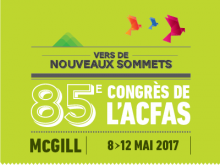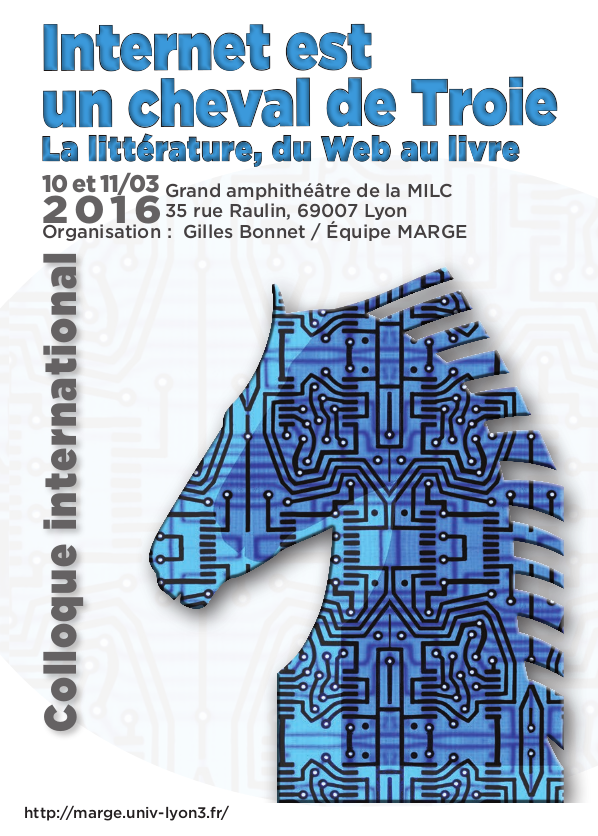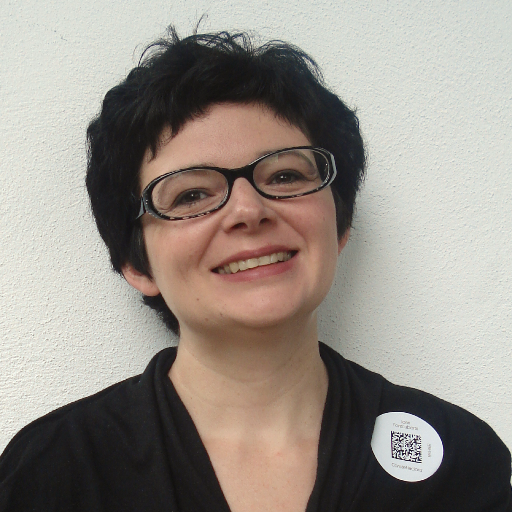"page_data":
{
"lang": "en",
"plausible_domain": "ecrituresnumeriques.ca",
"plausible_api_host": "https://plausible.ecrituresnumeriques.ca",
"id": 2,
"settings_id": 1,
"languages_code": "en",
"site_title": "Canada Research Chair in Digital Textualities",
"site_description": "We are now living in a digital space. This space is made of writing.",
"feature_image": "9ff5bed0-7d2c-40d6-9d3c-bf3dd7fcebaa",
"site_email": "crc.ecrituresnumeriques@gmail.com",
"site_address_html": "<p>Université de Montréal<br>Pavillon Lionel Groulx 8e étage<br>Local C8041<br>3150, rue Jean Brillant<br>Montréal (QC) H3T 1N8 Canada</p>",
"site_phone": "(+1) 514 343 5665",
"site_rights": "© 2024 Canada Research Chair in Digital Textualities. Some rights reserved.",
"site_social_accounts": [
{
"label": "Mastodon",
"icon": "mastodon",
"url": "https://mamot.fr/@ENumeriques"
},
{
"label": "X/Twitter",
"icon": "twitter",
"url": "https://twitter.com/ENumeriques"
},
{
"label": "YouTube",
"icon": "youtube",
"url": "https://www.youtube.com/channel/UC5LIw0dopbSSgqI2zdIi84w"
},
{
"label": "GitLab",
"icon": "gitlab",
"url": "https://gitlab.huma-num.fr/ecrinum/"
},
{
"label": "GitHub",
"icon": "github",
"url": "https://github.com/Ecrituresnumeriques"
},
{
"label": "Instagram",
"icon": "instagram",
"url": "https://www.instagram.com/enumeriques/"
},
{
"label": "Facebook",
"icon": "facebook",
"url": "https://www.facebook.com/Chaire-de-recherche-du-Canada-sur-les-%C3%A9critures-num%C3%A9riques-439923422871073/"
},
{
"label": "Internet Archive",
"url": "https://archive.org/details/@crc_sur_les_critures_num_riques",
"icon": "archive"
},
{
"label": "Papyrus Repository",
"url": "https://papyrus.bib.umontreal.ca/xmlui/browse?type=affiliation&value=Universit%C3%A9%20de%20Montr%C3%A9al.%20Chaire%20de%20recherche%20du%20Canada%20sur%20les%20%C3%A9critures%20num%C3%A9riques",
"icon": "udem"
},
{
"label": "Zotero",
"url": "https://www.zotero.org/groups/critures_numriques/items",
"icon": "zotero"
}
],
"site_menu_main": [
{
"label": "The Chair",
"url": "",
"items": [
{
"label": "About",
"url": "/en/about"
},
{
"label": "Team",
"url": "/en/team"
}
]
},
{
"label": "Activities",
"url": "",
"items": [
{
"label": "Projects",
"url": "/en/projects"
},
{
"label": "Events",
"url": "/en/events"
},
{
"label": "Publications (Zotero)",
"url": "https://www.zotero.org/groups/322999/critures_numriques/library",
"external": true
}
]
},
{
"label": "Topics & Concepts",
"items": [
{
"label": "Research Axis",
"url": "/en/research-axis"
},
{
"label": "Research Objects",
"url": "/en/research-objects"
},
{
"label": "Research Fields",
"url": "/en/research-fields"
},
{
"label": "Key Concepts",
"url": "/en/key-concepts"
}
]
}
],
"site_menu_secondary": [
{
"label": "Français",
"url": "/fr"
}
],
"site_menu_footer": [
{
"label": "About",
"url": "/en/about"
},
{
"label": "Projects",
"url": "/en/projects"
},
{
"label": "Stylo",
"external": true,
"url": "https://stylo.huma-num.fr/"
},
{
"label": "Sens public",
"url": "https://www.sens-public.org/",
"external": true
},
{
"label": "Revue 2.0",
"external": true,
"url": "https://revue20.ecrituresnumeriques.ca/"
},
{
"label": "Greek Anthology",
"url": "https://anthologiegrecque.org",
"external": true
},
{
"label": "Skholé",
"url": "https://skhole.ecrituresnumeriques.ca/"
}
],
"site_header_image_id": "23e109ab-c929-439b-96ba-63c9f822cb92",
"site_long_description": "We are now living in a digital space. This space is made of writing. Our identities are writing – profiles, databases' entries, lines of code –, our actions are writing – from clicks to buying a book or planning a trip – the objects around us are made of writing. The Canada Research Chair on Digital Textualites aims to offer a new reading and a new understanding of this writing that now makes our world. On this site you will find all the projects led by Marcello Vitali-Rosati and his team, the publications of the Chair members and the description of all the theoretical concepts used for our research. ",
"site_zotero_group_id": "322999",
"site_footer_logos": [
{
"directus_files_id": "f096827c-b644-45ed-89a6-e0cb2367006f"
},
{
"directus_files_id": "f53ad38e-86e6-4656-8915-35f890f8d2fd"
},
{
"directus_files_id": "41b61cb3-a410-4a81-a591-f943f30aa775"
},
{
"directus_files_id": "851f10ec-e4ad-4fc2-906c-7385a09af30f"
},
{
"directus_files_id": "f3a97c97-1f47-46a7-a698-4c99b2fc3689"
},
{
"directus_files_id": "0d8cf306-5e8c-438e-973a-d27f553addb4"
}
],
"page": 16,
"perPage": 11,
"next": 17,
"totalItems": 226,
"items": [
{
"slug": "conference-around-the-world-digital-media-in-a-post-truth-era",
"date_start": "2017-04-28",
"date_end": null,
"time_start": null,
"time_end": null,
"event_type": null,
"id": 1254,
"events_id": 627,
"languages_code": "en",
"title": "Conference ‘Around the World: Digital Media in A Post-Truth Era’ ",
"content_html": "<img src=\"http://www.crihn.org/files/sites/33/2017/04/ATW2017_international_poster_png-475x734.png\">\r\n<p>\r\nIn collaboration with the <b>Canada's Research Chair on Digital Humanities</b>, the <b>CRIHN</b> organize one of the sessions at the virtual conference \"<i>Around the World: Digital Media in a Post-Truth Era</i>\", thursday 4th May at 11 am: \"Post-truth and Authority\".\r\n</p>\r\n<p>\r\nAccording to Oxford dictionary, the word of 2016 is Post-truth, defined as a adjective \"relating to or denoting circumstances in which objective facts are less influential in shaping public opinion than appeals to emotion and personal belief.\" The Brexit and Donald Trump's election at the presidence of the United States were the context where the term \"Post-Truth\" was the most employed, particulary in reference to the circulation of fake news on social media. This was possible, they say, because of the lack of ultimate authority which can assure the validity and the truth in those news. This lack, is it implied by the web's structure? On the web, is that true that there is no authority? What makes authority on the web? What is the truth in Social Media Era? This round table's purpose is to think about this themes, try to have a better comprehension of our era and, maybe, give an answer to those questions.\r\n</p>\r\n<p>\r\n<i>Chairman of the meeting</i> : <b>Michael Sinatra</b> (Université de Montréal)\r\n<br>\r\n<lh><i>Speakers:</i></lh>\r\n<li><b>Marcello Vitali-Rosati</b> (Université de Montréal)</li>\r\n<li><b>Servanne Monjour</b> (Université de Montréal)</li>\r\n<li><b>Enrico Agostini-Marchese</b> (Université de Montréal)</li>\r\n</p>\r\n<iframe src=\"https://www.youtube.com/watch?v=b01n_4aJ1FY\"></iframe>\r\n",
"links": null,
"feature_image": null,
"description": "<h2>University of Alberta (virtually)\r\n<br>Thursday 4th May 2017, 11 am-12 pm</h2>",
"location": null,
"legacy_image": "http://www.crihn.org/files/sites/33/2017/04/ATW2017_international_poster_png-475x734.png",
"legacy_slug": "Conference-Around-the-World-Digital-Media-in-A-Post-Truth-Era-",
"legacy_location": null
},
{
"slug": "international-colloquium-br-l-invention-litteraire-des-medias",
"date_start": "2017-04-24",
"date_end": null,
"time_start": null,
"time_end": null,
"event_type": null,
"id": 1252,
"events_id": 626,
"languages_code": "en",
"title": "International Colloquium <br> « L'invention littéraire des médias »",
"content_html": "<img src=\"http://i.imgur.com/zUJpLsv.png\">\r\n<p>\r\nWould the media exist without literature? Could one indeed speak about television, photography or cinema without these devices were also built and institutionalized in our collective imagination by the literature and its speech? When <b> Jules Verne </ b>, in <i>The Kip Brothers</i> (1902), the faces of the murderers Flig Balt and Vin Mod appear on a photograph of the corpse of Captain Gibson, whose retina has printed the image of his death (as if the eye worked like a camera!), he participates fully in the construction of the collective imagination of photography. This imagination of the medium is certainly largely fantasized, but it will influence for a long time the photographic practices and their reception, beginning with the power of <i>revelation</i> of the image and by its alleged testimonial value. Thus, it is clear that the media are not only technological realities, but also - and perhaps first - discursive constructions. But in a context of major technological and cultural upheavals initiated by the digital, it becomes essential to better understand the role and influence that literature plays in the construction and institutionalization of the media.\r\n</p>\r\n<p>\r\nThis is the goal of the international conference \"The Literary Invention of the Media\", born from the collaboration between the <b>Canada Research Chair in Digital Writing </b> and the <b>Canada Research Chair in film and media studies</b>, whose work is at the crossroads of ancient and modern media. This conference will bring together about twenty international researchers whose work questions this particular mode of the invention of the media that is literature.\r\n</p>\r\n<p>\r\nOrganization: <b>Thomas Carrier-Lafleur</b>, <b>André Gaudreault</b>, <b>Servanne Monjour</b>, and <b>Marcello Vitali-Rosati</b>.\r\n</p>",
"links": [
{
"label": "Website",
"url": "http://ilm.ecrituresnumeriques.ca/fr/"
}
],
"feature_image": null,
"description": "<h2>Cinémathèque québécoise, 335, Boulevard de Maisonneuve East, Montreal \r\n<div class=\"dateHeure\">Thursday 27th and friday 28th April 2017</div>\r\n</h2>",
"location": null,
"legacy_image": "http://i.imgur.com/zUJpLsv.png",
"legacy_slug": "International-Colloquium-br--Linvention-litteraire-des-medias-",
"legacy_location": null
},
{
"slug": "colloquium-acfas-2017-la-publication-savante-en-contexte-numerique",
"date_start": "2017-04-17",
"date_end": null,
"time_start": null,
"time_end": null,
"event_type": null,
"id": 1250,
"events_id": 625,
"languages_code": "en",
"title": "Colloquium ACFAS 2017 « La publication savante en contexte numérique »",
"content_html": "<img src=\"http://www.acfas.ca/sites/default/files/styles/medium/public/2016-06/ACFAS_wordmark_Hor_Final_Col.png?itok=uptXc60v\" />\r\n<p>\r\nAfter a first <b>ACFAS</b> congress of <i>Centre de Recherche Interuniversitaire sur les Humanités Numériques</i> (<i>CRIHN</i>) in 2014, the objective of our 2017 congress is to <i>rethink from a theoretiical and practical point of view the scholarly publishing in digital age</i>.\r\n</p>\r\n<p>\r\nIt has become a cliché to point out that digital has invaded all spheres of knowledge production and diffusion, just as it has invaded the entire structure of society. All of the expertise and activities around uses, documents and digital cultures that have been developed over the last twenty years are constantly gaining momentum in all knowledge disciplines. Our research activities are now part of a <b>digital environment</b> that is not without consequences on the nature of the research itself, its objects, methods and results. However, most projects (databases, new publishing platforms, research and analysis tools, etc.) remain mostly isolated from each other, especially in the humanities. The <b>central theme</b> of our conference is to <i>identify the changes brought about by the digital in the field of knowledge production and dissemination in the humanities</i>. More precisely, we will study how the digital world causes a rearrangement of devices for the production and diffusion of knowledge and contents in human science through scholarly publishing.\r\n</p>\r\n<p>\r\n<h3>Program</h3>\r\n<ul>\r\n<li>9am — Welcoming from the organizing committee <b>Michael Sinatra</b>, <b>Nicolas Sauret</b>, and <b>Marcello Vitali-Rosati</b></li>\r\n<li>9.15am — Keynote lecture under <b>Nicolas Sauret</b> (University of Montreal) moderation</li>\r\n<ul>\r\n<li> <a href=\"https://archive.org/details/Hermeneutica-publications-interactives-Geoffrey-Rockwell\" target=\"_blank\"><b>Geoffrey Rockwell</b> (University of Alberta) and <b>Stéfan Sinclair</b> (McGill University) « Hermeneutica: Publishing Interactives »</a>.</li>\r\n</ul>\r\n<li>10.30am to 11am — Coffee break</li>\r\n<li>11am to 12.30pm — <a href=\"https://archive.org/details/publication-savante-contexte-numerique-1\" target=\"_blank\">First panel under <b>Emmanuel Château-Dutier</b> (University of Montreal) moderation</a></li>\r\n<ul>\r\n<li><b>Renee Bourassa</b> (Laval University): « Figures du livre en contexte numérique : matérialité, hybridité, intermédialité »</li>\r\n<li><b>Jean-Claude Guédon</b> (University of Montreal): « Les enjeux du libre accès pour le Québec »</li>\r\n</ul>\r\n<li>12.30pm to 1h45pm — Lunch</li>\r\n<li>1.45pm to 3.15pm — <a href=\"https://archive.org/details/publication-savante-contexte-numerique-2\" target=\"_blank\">Second panel under <b>Marcello Vitali-Rosati</b> (University of Montreal) moderation</a></li> \r\n<ul>\r\n<li><b>Emmanuel Château-Dutier</b> (University of Montreal): « Éditer pour répondre à des questions de recherche en histoire de l’art »</li>\r\n<li><b>Nicolas Sauret</b> (University of Montreal): « Fabrique de la revue en ligne Sens Public : concevoir la revue scientifique comme espace public »</li>\r\n</ul>\r\n<li>3h15pm to 3.45pm — Coffee break</li>\r\n<li>3h45 to 4.30pm — Third panel under <b>Michael Sinatra</b> (University of Montreal) moderation</li>\r\n<ul>\r\n<li><a href=\"https://archive.org/details/Httpsarchive.orgdetailspublication-savante-contexte-numerique-3\" target=\"_blank\"><b>Bertrand Gervais</b> (UQAM): « Littérature québécoise mobile, ou quels dispositifs utiliser pour dynamiser la communauté littéraire »</a></li>\r\n</ul>\r\n<li>4.30pm to 5pm — Closing speech under <b>Marcello Vitali-Rosati</b> (University of Montreal) moderation</li>\r\n<ul>\r\n<li><b>Dominique Bérubé</b> (CRSH)</li>\r\n</ul>\r\n<li>5pm to 6pm — Cocktail</li>\r\n</ul>\r\n<p>\r\nThis congress, organized by <b>CRIHN</b>, is founded by the <i>Département de littératures et langues du monde</i> and by the <b>Canada Research Chair of Digital Textualities</b>.</p>",
"links": null,
"feature_image": null,
"description": "<h2>McGill University\r\n<br>Building Trottier 2120\r\n<div class=\"dateHeure\">Friday 12th May 2017, 9am-6pm</div></h2>\r\n</h2>",
"location": null,
"legacy_image": "http://www.acfas.ca/sites/default/files/styles/medium/public/2016-06/ACFAS_wordmark_Hor_Final_Col.png?itok=uptXc60v",
"legacy_slug": "Colloquium-ACFAS-twozerooneseven-La-publication-savante-en-contexte-numerique",
"legacy_location": null
},
{
"slug": "conference",
"date_start": "2017-04-12",
"date_end": null,
"time_start": null,
"time_end": null,
"event_type": null,
"id": 1204,
"events_id": 602,
"languages_code": "en",
"title": "conference",
"content_html": "",
"links": null,
"feature_image": null,
"description": "",
"location": "",
"legacy_image": null,
"legacy_slug": null,
"legacy_location": ""
},
{
"slug": "conference-of-jeffrey-schnapp",
"date_start": "2017-03-28",
"date_end": null,
"time_start": null,
"time_end": null,
"event_type": null,
"id": 1244,
"events_id": 622,
"languages_code": "en",
"title": "Conference of Jeffrey Schnapp",
"content_html": "<img src=\"https://upload.wikimedia.org/wikipedia/commons/8/8d/Jeffrey2.jpg\" />\r\n<p>\r\n\"The phrase <i>Knowledge Design</i> describes the situation in the contemporary arts and humanities that most engages me as a “digital humanist”: the fact that the form that knowledge assumes can no longer be considered a given.\r\nIn my talk, I will provide an overall mapping of this situation and single out some key nodes: the re-mediation of print, data portraiture, bridging the analogue/digital divide, and the redesign of knowledge spaces from classrooms to museums.\"\r\n</p>\r\n<p>\r\n<b>Jeffrey Schnapp</b> is the founder/faculty director of <i>metaLAB</i> (at) Harvard and faculty co-director of the <i>Berkman Center for Internet and Society</i>. At <b>Harvard</b>, he serves as Professor of Romance Literatures and Comparative Literature, and is on the teaching faculty in the Department of Architecture at Harvard’s Graduate School of Design. In June 2015 he assumed the position of Chief Executive Officer and co-founder of <i>Piaggio Fast Forward</i>, devoted to developing innovative solutions to the transportation challenges of the contemporary world.\r\n</p>\r\n<p>\r\nTo get a better idea of what <i>Knowledge Design</i> is, you may visit the <a href=\"http://www.tcd.ie/library/news/future-library/jeffrey-schnapp-knowledge-design/\" target=\"_blank\">Dublin Trinity College Library's website</a>, where Mr. Schnapp gave a presentation. \r\n</p>\r\n<p>\r\nIf you would like to learn more about the work and interests of Jeffrey Schnapp, this <a href=\"https://digital.hbs.edu/events/knowledge-design/\" target=\"_blank\">article</a> on the Harvard University website will satisfy your curiosity.\r\n</p>\r\n<iframe src=\"https://ia601504.us.archive.org/28/items/JeffreySchnappsLectureKnowledgeDesign/Jeffrey%20Schnapp%27s%20lecture_Knowledge%20Design.mp4\" /></iframe>",
"links": null,
"feature_image": null,
"description": "<h2>University of Montréal\r\n<br><br>Pavillon Lionel-Groulx, Local C-3061\r\n<div class=\"dateHeure\">Tuesday 6th April 2017, 5:45pm-7pm</div></h2>",
"location": null,
"legacy_image": "https://upload.wikimedia.org/wikipedia/commons/8/8d/Jeffrey2.jpg",
"legacy_slug": "Conference-of-Jeffrey-Schnapp",
"legacy_location": null
},
{
"slug": "round-table-the-encyclopedic-project-in-the-digital-era",
"date_start": "2017-03-28",
"date_end": null,
"time_start": null,
"time_end": null,
"event_type": null,
"id": 1246,
"events_id": 623,
"languages_code": "en",
"title": "Round Table - The Encyclopedic Project in the Digital Era",
"content_html": "<p>Organized by the <b>CRIHN</b>, <i>Canada Research Chair in Film and Media Studies</i> and <b>Canada Research Chair in Digital Textualities</b> as a part of the <i>Technes</i> project, this round table will raise the question of the renewal of the encyclopedic project as a form of systematisation and circulation of knowledge.\r\n</p>\r\n<h3>How to reconsider the editorial and epistemological model of the Encyclopedia in the digital era?</h3>\r\n<b>Moderator</b> : Servanne Monjour\r\n<b>Speakers</b> :\r\n<ul>\r\n<li>Rémy Besson</li>\r\n<li>Benoît Melançon</li>\r\n<li>Emmanuel Château-Dutier</li>\r\n</ul>\r\n<iframe src=\"https://ia601509.us.archive.org/1/items/TableRondeLeProjetEncyclopediqueALepoqueDuNumerique/Table%20ronde%20-%20Le%20projet%20encyclopedique%20a%20l%27epoque%20du%20numerique.mp4\" ></iframe></iframe>",
"links": null,
"feature_image": null,
"description": "<h2>University of Montréal\r\n<br>Pavillon Lionel-Groulx, Local C-3061\r\n<div class=\"dateHeure\">Tuesday 6th April 2017, 4pm-5:30pm</div></h2>",
"location": null,
"legacy_image": null,
"legacy_slug": "Round-Table---The-Encyclopedic-Project-in-the-Digital-Era",
"legacy_location": null
},
{
"slug": "",
"date_start": "2017-03-23",
"date_end": null,
"time_start": null,
"time_end": null,
"event_type": null,
"id": 1202,
"events_id": 601,
"languages_code": "en",
"title": "",
"content_html": "",
"links": null,
"feature_image": null,
"description": "",
"location": "",
"legacy_image": null,
"legacy_slug": null,
"legacy_location": ""
},
{
"slug": "conference-of-marcello-vitali-rosati",
"date_start": "2017-03-17",
"date_end": null,
"time_start": null,
"time_end": null,
"event_type": null,
"id": 1242,
"events_id": 621,
"languages_code": "en",
"title": "Conference of Marcello Vitali-Rosati",
"content_html": "<img src=\"http://www.chairelexum.ca/files/sites/21/2017/02/ChaireLexUM_Rosati_11-avril_web-475x734.jpg\" />\r\n<h3>Digital Authorities and Post-Truth</h3>\r\n<p>\r\nAt the time of <b>« post-truth »</b> and of <b>« alternative facts »</b>, we can\r\n– and we <i>must</i> – ask ourselves : What is authoritative in digital space ?\r\nWhat are the devices that give weight to an assertion or to information?\r\nIt has often been argued that the Internet is a place of emancipation\r\nof the authority. « Everybody » can talk, there is no strong powers, there is no more\r\nauthority, the community has the last word, there is no authors anymore.\r\nHowever, a closer analysis shows that this is far from true. The Internet is not\r\na destructured and unregulated place, it is simply characterized by <i>different</i> structures.\r\nWithin the framework of these structures emerge new devices of production of authority.\r\nIdentifying and studying these mechanisms is essential to understand the political\r\nstakes of the digital environment and in particular to try to identify \"public\"\r\nspaces where <b>truth regimes</b> are acceptable for democratic societies.\r\n</p>\r\n<p>\r\nThe conference, presented by <b>Marcello Vitali-Rosati</b>, <i>Digital Textualities Canada Research Chair</i>'s holder,\r\nis an invitation from the <b>LexUM Chair on Legal Information</b>. It is free, and open to everyone.\r\n<p>\r\nThe session is available on the <a href=\"https://www.youtube.com/watch?v=kPQ5a8XNWjA\">Cyberjustice Lab's YouTube channel</a>.</p>",
"links": null,
"feature_image": null,
"description": "<h2>University of Montreal\r\n<br>Carrefour des arts et des sciences, Local C-2059\r\n<div class=\"dateHeure\">Tuesday, 11th April 2017, 4.30 pm</div></h2>",
"location": null,
"legacy_image": "http://www.chairelexum.ca/files/sites/21/2017/02/ChaireLexUM_Rosati_11-avril_web-475x734.jpg",
"legacy_slug": "Conference-of-Marcello-Vitali-Rosati",
"legacy_location": null
},
{
"slug": "",
"date_start": "2017-03-16",
"date_end": null,
"time_start": null,
"time_end": null,
"event_type": null,
"id": 1200,
"events_id": 600,
"languages_code": "en",
"title": "",
"content_html": "",
"links": null,
"feature_image": null,
"description": "",
"location": "",
"legacy_image": null,
"legacy_slug": null,
"legacy_location": ""
},
{
"slug": "conference-proceedings-publication-of-briinternet-est-un-cheval-de-troie-i",
"date_start": "2017-02-15",
"date_end": null,
"time_start": null,
"time_end": null,
"event_type": null,
"id": 1240,
"events_id": 620,
"languages_code": "en",
"title": "Conference proceedings' publication of <br><i>Internet est un cheval de Troie</i>",
"content_html": "<img src=\"http://vincent.mabillot.net/wp-content/uploads/InternetChevalDeTroie.png\" />\r\n<p>\r\nI have the great pleasure to announce that <a href=\"https://www.fabula.org/#\" target=\"_blank\">Fabula</a> just published, yesterday evening, the conference proceedings of <i>Internet est un cheval de Troie</i>, which you agreed to participe. The conference happened in Lyon, in March 2016. \r\n</p>\r\n<p>\r\n<b>Élisabeth Routhier</b> and <b>Jean-François Thériault</b>, doctoral candidates at University of Montreal, talks about the <a href=\"https://www.fabula.org/colloques/document4167.php\">Auctorial Performance and the Literary System around <i>Pourquoi Bologne</i> from Alain Farah</a>.\r\n</p>\r\n<p>\r\n<b>Marcello Vitali-Rosati</b>, holder of the <b>Chair</b> and associate professor at University of Montreal, concludes the publication by article <a href=\"https://www.fabula.org/colloques/document4191.php\" target=\"_blank\"><i>Paper Literature and Digital Literature, An Opposition ?</i></a> \r\n</p>\r\n<p>\r\nTo access the whole publication, it's <a href=\"https://www.fabula.org/colloques/index.php?id=4120\" target=\"_blank\">here</a>.\r\n</p>\r\n<p>\r\nThis conference was supported by the <b>Research Commission</b> and the <b>Letters and Civilisations' Faculty of University of Jean Moulin-Lyon 3</b>.\r\n</p>",
"links": null,
"feature_image": null,
"description": "",
"location": null,
"legacy_image": "http://vincent.mabillot.net/wp-content/uploads/InternetChevalDeTroie.png",
"legacy_slug": "Conference-proceedings-publication-of-briInternet-est-un-cheval-de-Troiei",
"legacy_location": null
},
{
"slug": "conference-of-clarisse-bardiot",
"date_start": "2017-02-08",
"date_end": null,
"time_start": null,
"time_end": null,
"event_type": null,
"id": 1248,
"events_id": 624,
"languages_code": "en",
"title": "Conference of Clarisse Bardiot",
"content_html": "<center><img src=\"http://www.lettresnumeriques.be/wp-content/uploads/2016/11/Clarisse-Bardiot.png\" align=\"middle\" style=\"width:30%;height:30%;\"></center>\r\n<center><h3><i>Arts de la scène et Culture Analytics</i></h3></center>\r\n<br>While stage arts have widely questioned \"new\" technologies from an aesthetical point of view, the application of the these latter on the former ones study is a nascent phenomenon. The digital humanities could be the flag of new scientific perspectives for stage arts studies as it is for other domains? After an overview on the \"two waves\" (Presner, 2010) of digital humanities in the field of theatrical studies, I will analyze more specifically the possibilities given by <i>Culture analytics</i>, that is the data oriented analyse of culture. Starting from the methodologies experimented in the <i>Culture Analytics</i> program at UCLA, I will show the several possibilities in studying, analyzing and documentation in a \"medium data\" context.\r\n<br>\r\n<br><small>PhD holder on <i>Les Théâtres virtuels</i> (Paris 3/CNRS, \r\n2005), Clarisse Bardiot is associate professor of the University of Valenciennes (DeVisu lab) and associated researcher of the ArtSciLab Experimental Publishing Initiative lab directed by Roger Malina at Texas University in Dallas. In 2005, she obtained the visiting researcher grant at Daniel Langlois Foundation in Montreal for a research on <i>9 Evenings, Theatre & Engineering \r\n</i>. After that she participated in the international project DOCAM. In 2011, she created <b>Subjectile</b>, a publishing house devoted to the contemporary creation, focused on paper and digital publishing. In 2016, she was selected to participate in the \"culture analytics\" long terme program at the Institue for Applied mathematics of the University of California in Los Angeles. She's developing <i>Rekall</i> and <i>MemoRekall</i>, an environment and an open source webapp to documenting, creation processes analyzing and simplifying works reshowing. \r\nHer research axes are history and digital performances aesthetics, digital humanities, art / science / technology relations, digital works conservation, and new publishing forms.</small>\r\n<br>\r\n<br>Organized by the <b>Canada research Chair on Digital Textualities</b> and the <b>CRIHN - \r\nIntercollegiate Research Center on Digital Humanities</b>.\r\n<br>\r\n<br>\r\n<center><video width=\"640\" height=\"480\" controls>\r\n <source src=\"https://archive.org/download/clarisse-bardiot-culture-analytics_201702/conf_bardiot.mp4\" type=\"video/mp4\">\r\nThe round table recording is available on the Archive.org <a href=\"https://archive.org/details/clarisse-bardiot-culture-analytics\">Chair account</a>.\r\n</video></center>",
"links": null,
"feature_image": null,
"description": "<h2>University of Montreal\r\n<br />Pavillon Lionel-Groulx, Local C-3061\r\n<div class=\"dateHeure\">Monday, 20th February 2017, 4 pm</div></h2>",
"location": null,
"legacy_image": "http://www.lettresnumeriques.be/wp-content/uploads/2016/11/Clarisse-Bardiot.png",
"legacy_slug": "Conference-of-Clarisse-Bardiot",
"legacy_location": null
}
]
}






